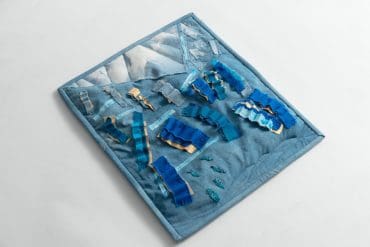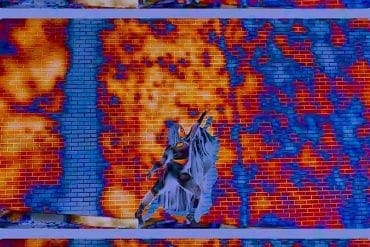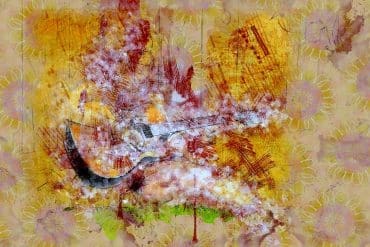Afrofutures: River Tears
Author’s Memo
Black voices, marginalized voices, impoverished voices provide watery echos, not only from the annals of history, but also from familial lore, cultural literature, and a plethora of contemporary context. My first conscious recognition of this emerged in my early youth, when I visited the homes of relatives on both sides of my family whose houses rested in very near proximity to rivers, sounds, and the very ocean itself. My father’s ancestral community, seated just on the banks of the inter-coastal waterways in Craven and Carteret County, NC and my mother’s family, some of whom liked dangerously close to the Tar River.
These homes, did not always reflect the picturesque beauty associated with living “by the sea.” In fact, those of increased means that boasted of waterfront homes were often above sea level and rarely dealt with a fear of loss comparable to that of the poorer people of water, who sought a closer proximity to the water because of a more financially feasible existence. I remember my grandmother carrying dry clothes to relatives when houses were flooded, offering a safe haven as she lived more centrally in our city.
Black voices, marginalized voices, impoverished voices provide watery echos, not only from the annals of history, but also from familial lore, cultural literature, and a plethora of contemporary context.
This fierce river motif continued to capture my attention, as in my graduate program in a Black literature course I encountered Uncle Tom’s Children by Richard Wright (1938), and I again was struck by the ferocity of the river raging against poorest Black families, particularly in the chapter “Down by the Riverside.” Again, in this account, the river conspires with racism and poverty create havoc and herald death.
When we consider the not so distant past, consider the breaking of levees, water rushing in to wreck havoc, often on those who have the least, we cannot discount the influence of this liquid energy.
However…
From all there is something to be learned, as the river itself has been victimized, has not escaped its own environmental terrorism. Some have become dry or even ceased.
My speculative mind believes there is something to be learned and perhaps something to be done. Maybe there is a deal that can be struck. Maybe, even after all this time, the river, who too has been tricked and abused, can find a way to work with those who too seek a better way, a way that involves remembrance, respect, restoration…for a more just and equitable future. This work reflect this desire for this revolutionary shift.

” This was his home. But now he would have to leave, for the water was rising and there was no telling when or where it would stop”
-Richard Wright
Uncle Tom’s Children, 1938
Afrofutures: River Tears
I.
…even The River
& The Voice cried
Let there be…
& it was so
& it was all so…
so loved
All Creation
was loved
even The River
Creature House
Watered Way
Holder of the newest secrets of
a blooming & budding earth
flowing to & through
a seeing & knowing
Witness of Love
until…
II.
The River Waits
This old dry bed waits for the rain to move ancient sediment downstream
its hot mouth exposed & yearning
It waits for new life to fall from the sky like it once did-
raging & flooding
overflowing its banks
taking in the forlorn living
spitting out the bloated dead
polishing captured stones & bones
trapping dark secrets
keeping confidences
covering truths
feeding ravenous spirits
drenching the professed redeemed…
sanctifying them
This old dry bed will open wide its rough gravely mouth for water like wine
gurgle greedily & anger in the not-enough-ness
determine that if it ever fills again, it will take back all that it has lost
as soon as what was lost wanders within its reach-
the young & the old
the prepared & the unready
the holy & the wicked…
I will not be fooled
I have not forgotten
There will be righteous fury
There will be…
Revolution
III.
Black Forth Back
Is this gift too late?
It, turning up after I’m dead
…after we are all dead
The pushing, the pulling, the running
the breath, the beating, the dying…
Is it too late?
The river has seen it all &
angry, it has run in its righteousness
polluted with exsanguinated corpses
& dreams
It ebbs in tire
tides rocking in & out
in and out
from age to age
Yet, these ancient incantations persist
in the mouths of elders & their ghosts
chants that float back time
& bring the Long Dead
the Too Late
back to living
back to loving
worthy of love
delivered to love
Whole
Credits
Featured Image by Rod Long for Unsplash
Image by Jessica Felicio for Unsplash
Learn More
New to autoethnography? Visit What Is Autoethnography? How Can I Learn More? to learn about autoethnographic writing and expressive arts. Interested in contributing? Then, view our editorial board’s What Do Editors Look for When Reviewing Evocative Autoethnographic Work?. Accordingly, check out our Submissions page. View Our Team in order to learn about our editorial board. Please see our Work with Us page to learn about volunteering at The AutoEthnographer. Visit Scholarships to learn about our annual student scholarship competition.
Regina YC Garcia is an award winning poet and English professor from Greenville NC. A previous contributor of the AutoEthnographer, she is also published in a variety of journals and anthologies. Her book, The Firetalker’s Daughter, published by Finishing Line Press, was released in March of 2023.










